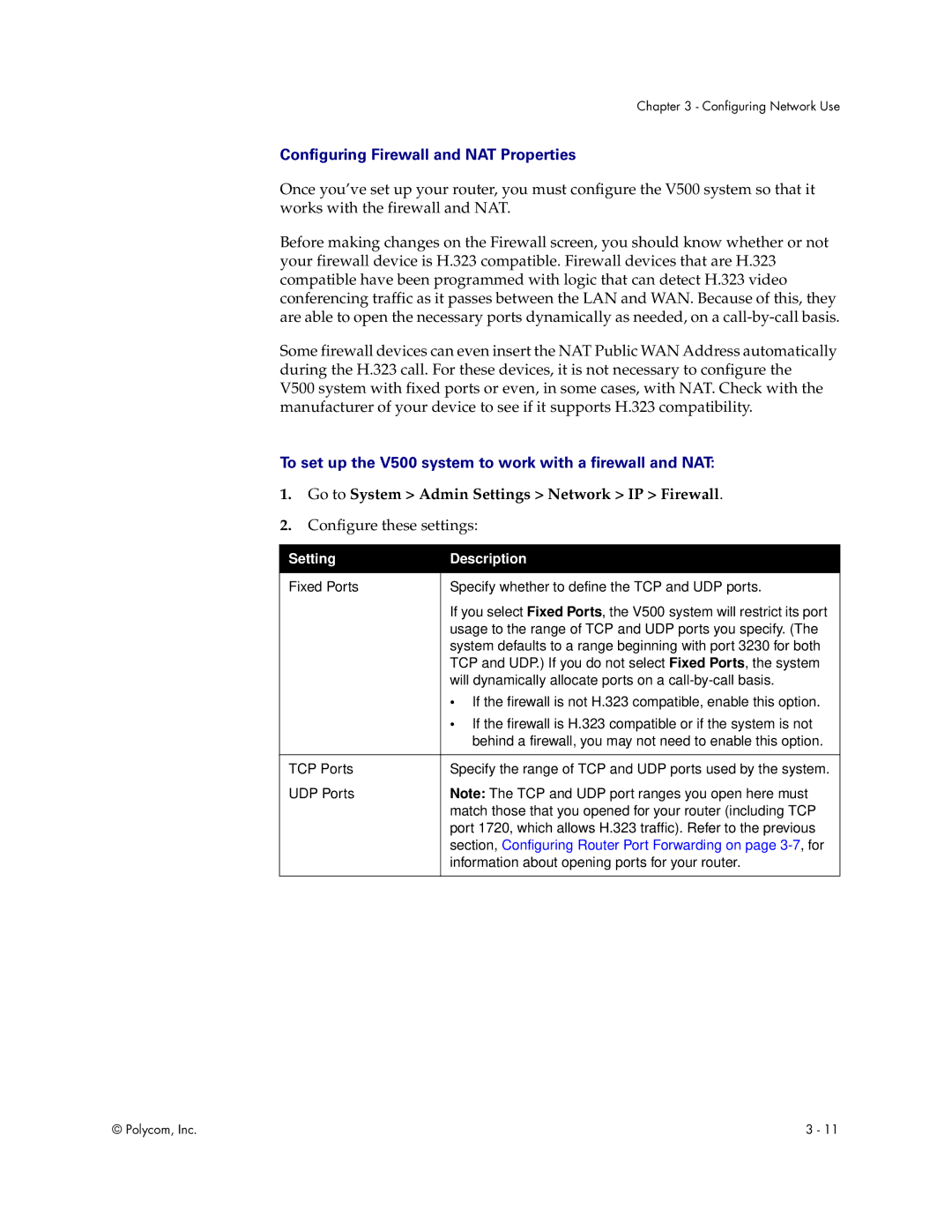Chapter 3 - Configuring Network Use
Configuring Firewall and NAT Properties
Once you’ve set up your router, you must configure the V500 system so that it works with the firewall and NAT.
Before making changes on the Firewall screen, you should know whether or not your firewall device is H.323 compatible. Firewall devices that are H.323 compatible have been programmed with logic that can detect H.323 video conferencing traffic as it passes between the LAN and WAN. Because of this, they are able to open the necessary ports dynamically as needed, on a
Some firewall devices can even insert the NAT Public WAN Address automatically during the H.323 call. For these devices, it is not necessary to configure the
V500 system with fixed ports or even, in some cases, with NAT. Check with the manufacturer of your device to see if it supports H.323 compatibility.
To set up the V500 system to work with a firewall and NAT:
1.Go to System > Admin Settings > Network > IP > Firewall.
2.Configure these settings:
Setting | Description |
|
|
Fixed Ports | Specify whether to define the TCP and UDP ports. |
| If you select Fixed Ports, the V500 system will restrict its port |
| usage to the range of TCP and UDP ports you specify. (The |
| system defaults to a range beginning with port 3230 for both |
| TCP and UDP.) If you do not select Fixed Ports, the system |
| will dynamically allocate ports on a |
| • If the firewall is not H.323 compatible, enable this option. |
| • If the firewall is H.323 compatible or if the system is not |
| behind a firewall, you may not need to enable this option. |
|
|
TCP Ports | Specify the range of TCP and UDP ports used by the system. |
UDP Ports | Note: The TCP and UDP port ranges you open here must |
| match those that you opened for your router (including TCP |
| port 1720, which allows H.323 traffic). Refer to the previous |
| section, Configuring Router Port Forwarding on page |
| information about opening ports for your router. |
|
|
© Polycom, Inc. | 3 - 11 |
